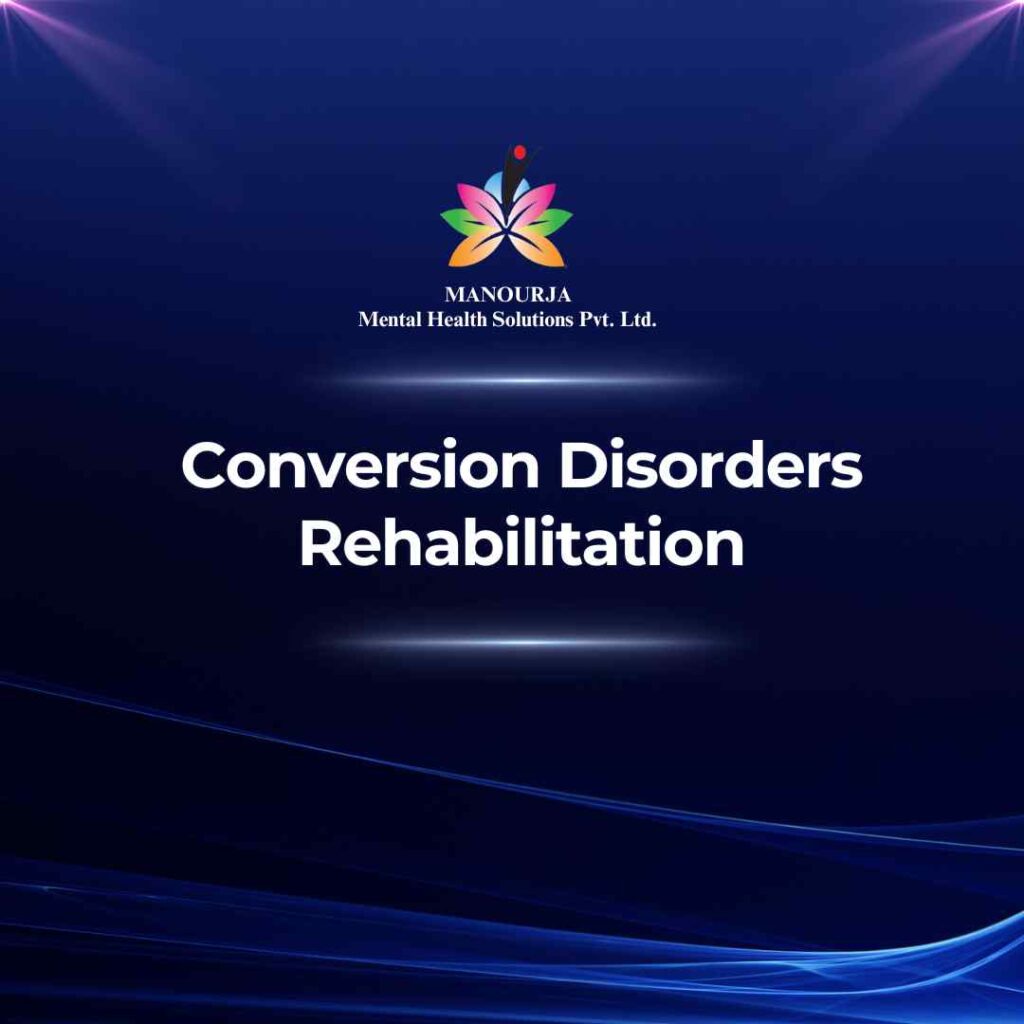Conversion Disorders Rehabilitation

Conversion Disorder, also known as Functional Neurological Symptom Disorder, involves neurological symptoms that cannot be explained by medical evaluation. Symptoms typically involve motor or sensory function impairment suggestive of a neurological problem but are associated with psychological factors. It is crucial for both the affected individuals and their families to recognize the signs and symptoms to seek appropriate psychosocial rehabilitation.
Signs and Symptoms of Conversion Disorders
- Motor Symptoms: Weakness or paralysis, abnormal movements, tremors, difficulty walking, or loss of coordination.
- Sensory Symptoms: Altered, reduced, or absent skin sensation, vision, or hearing.
- Seizures or Convulsions: Episodes that may resemble epileptic seizures but without the typical electrical discharges seen in epilepsy on an EEG.
- Speech Issues: Slurred or garbled speech, inability to speak, or loss of speech.
- Psychological Factors: Symptoms often begin after a stressful experience, trauma, or emotional conflict.
Indicators for Outpatient Psychosocial Rehabilitation (OPD)
- Symptoms that are distressing but do not severely limit daily functioning.
- Stable and supportive home environment where daily coping strategies can be practiced.
- Presence of specific stressors or triggers that can be addressed in a scheduled, structured therapy environment.
Indicators for Inpatient Psychosocial Rehabilitation (IPD)
- Severe symptoms that significantly impair physical, social, or occupational functioning.
- Safety concerns, such as risk of injury from frequent falls or severe episodes resembling seizures.
- Ineffectiveness of outpatient treatments or lack of a supportive home environment.
Factors Influencing the Decision
- Severity of the symptoms and their impact on daily life.
- The psychological stability of the individual and their ability to engage in outpatient therapy.
- Availability of resources such as family support and accessibility to outpatient services.
How Psychosocial Rehabilitation Aids in Treating Conversion Disorders
Psychosocial rehabilitation focuses on improving functional abilities, managing symptoms, and addressing underlying psychological issues. Techniques often involve:
- Psychotherapy: Particularly cognitive-behavioral therapy (CBT) to address distorted thinking and behavioral patterns.
- Physical Therapy: To improve motor function and manage physical symptoms.
- Occupational Therapy: Aids in restoring the ability to perform daily activities.
- Stress Management Techniques: Such as relaxation training and mindfulness to help manage triggers.
- Education: Teaching the patient and family about the disorder to reduce stigmatization and improve coping strategies.
Specific Techniques and Approaches at MANOURJA
- Cognitive Behavioral Therapy (CBT): Helps modify the thought patterns contributing to the symptoms, addressing misconceptions about the disorder and building coping skills.
- Integrated Psychotherapy: Combines elements of psychotherapy with neuropsychological education to help understand and manage symptoms.
- Functional Rehabilitation: Focuses on practical skills needed to improve mobility and independence.
- Family Therapy: Engages family members to support the individual’s recovery and address any interpersonal issues contributing to stress.
Steps in Psychosocial Rehabilitation at MANOURJA
- Comprehensive Evaluation: Assess both psychological and physical health to establish a tailored treatment plan.
- Development of a Personalized Rehabilitation Plan: Based on individual symptoms, needs, and goals.
- Engagement in Multi-disciplinary Therapy: Utilizing various therapeutic modalities to address both mental and physical aspects of the disorder.
- Regular Reviews and Adjustments: To monitor progress and make necessary adjustments to the rehabilitation plan.
- Community Integration and Support: Assisting individuals in re-engaging with community activities and building a supportive network.
“Every day brings a new opportunity to move forward.”
